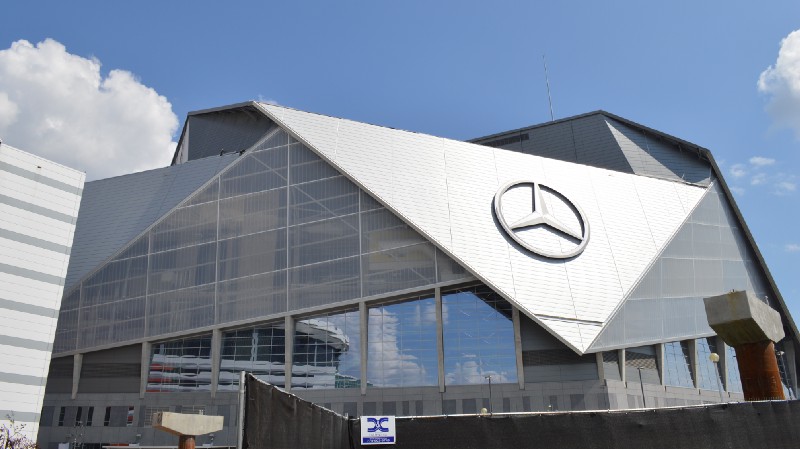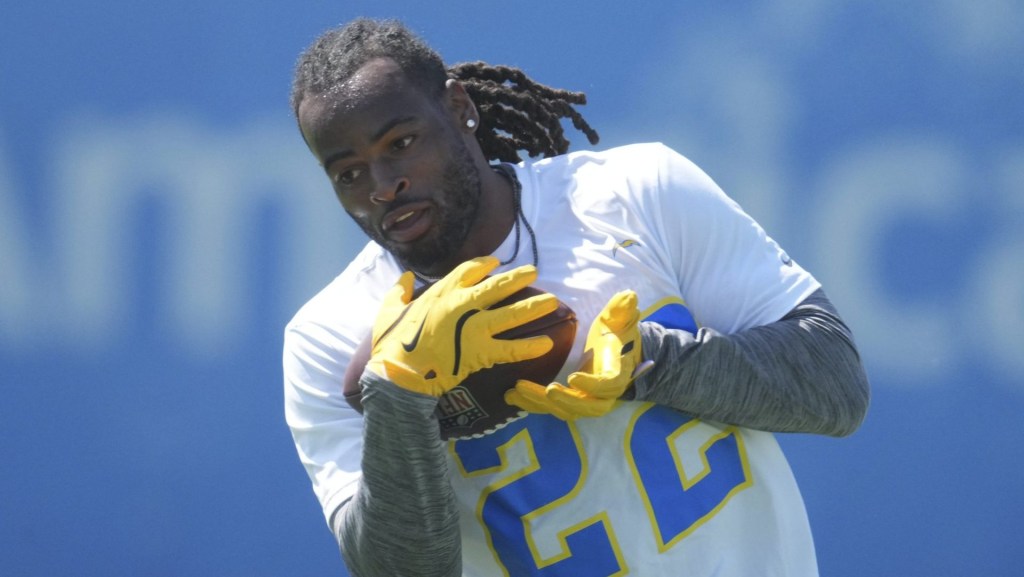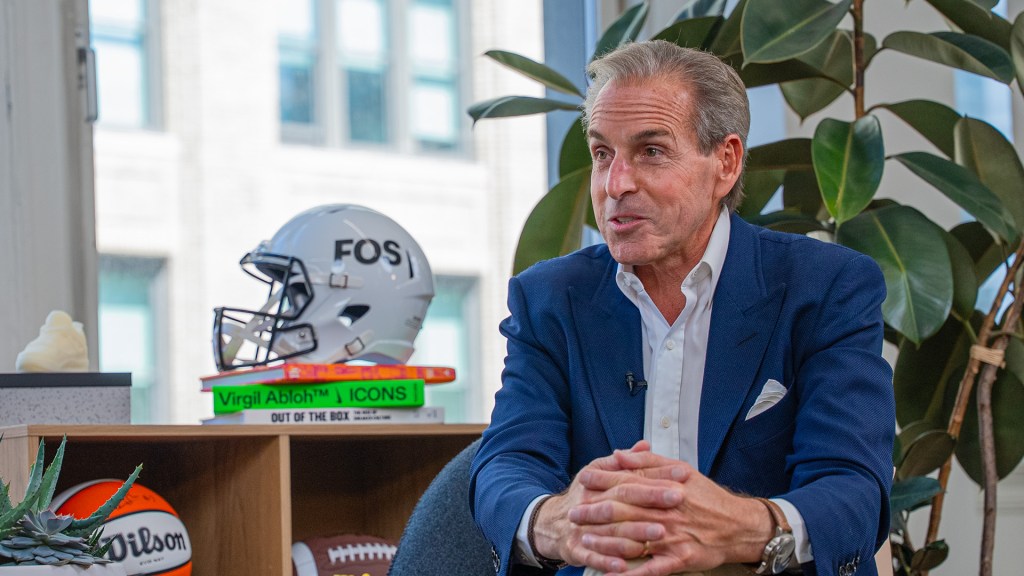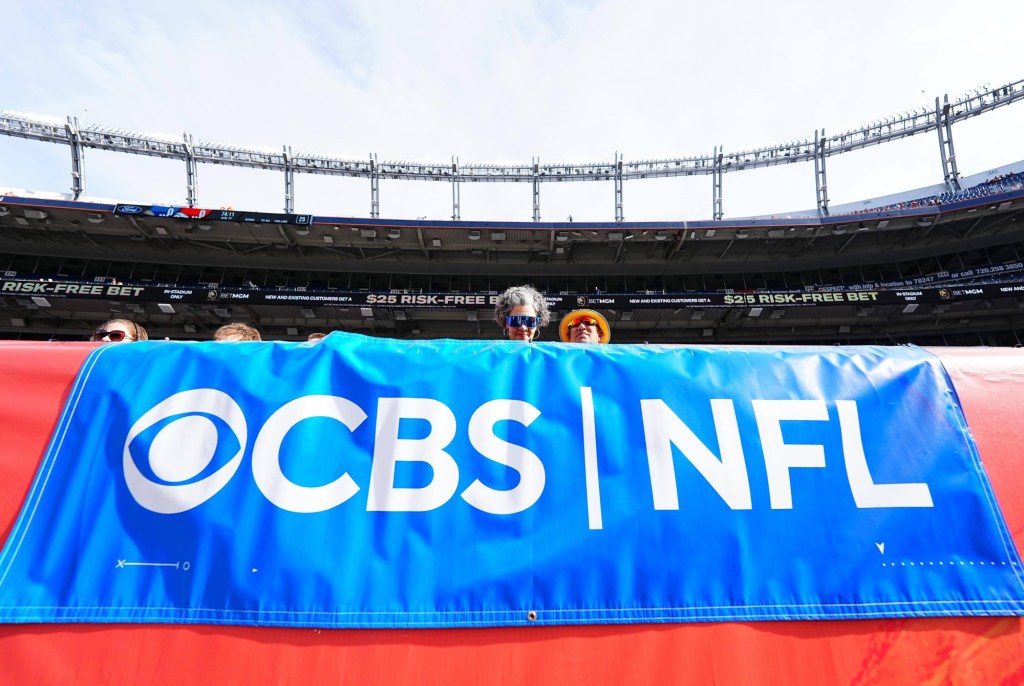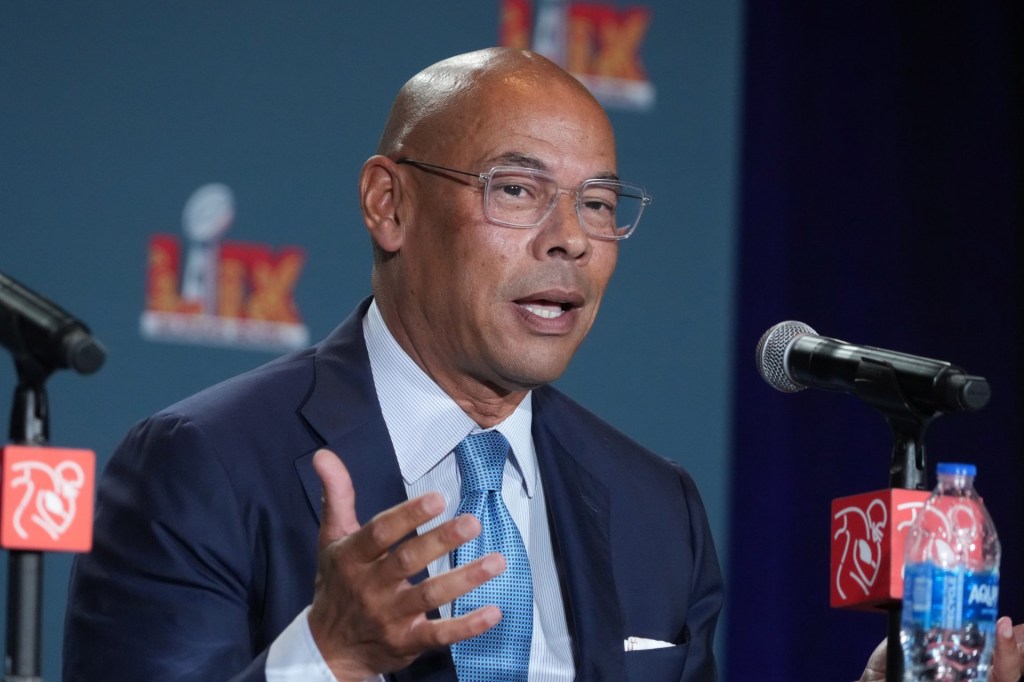Data suggests that beauty is in the eye of the beholder.
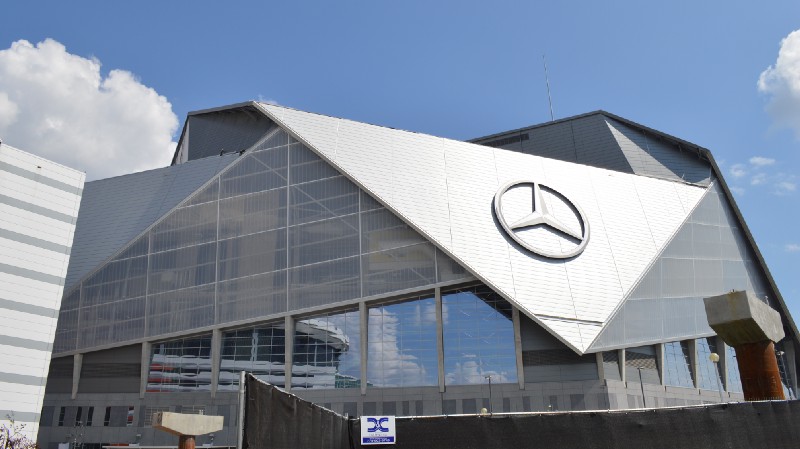
Over the last several years, we have heard companies announce sponsorship of an NFL team’s new or existing stadium. We stop to think if the name goes well with the team and region, whether it upends or creates new tradition, and lastly, take note of the large sum that went into securing those rights.
The transactions garner headlines at first but less attention is paid in looking back on how the deals fare for both parties later. Many other perks fall in line with the deals beyond just the stadium name as well.
HOW NAMING RIGHTS BECAME A THING
Two of the earliest naming rights deals to involve an NFL stadium originally happened in the AFC East.
The New England Patriots were essentially nomads for most of their early existence beginning tin the AFL. They moved from one college field to the next in the Boston area until the NFL put the thumb on them after the merger in 1971 to find a long-term home.
Schaefer Beer loved putting their name on a lot of things. The company had deep advertising roots in the 20th century from the 1939 World’s Fair to a prominent sign at Ebbets Field in Brooklyn.
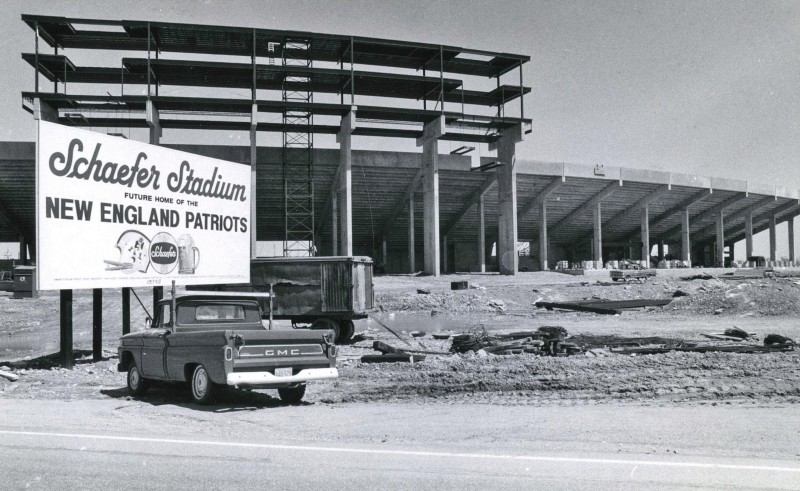
At the last minute, then Patriots owner, Billy Sullivan, struck a deal to move down U.S. 1 to Foxboro and construct a $6.7 million stadium with 25% of it financed by $1.46 million from Schaefer Beer to see their name on the stadium over the 12 years.
Football was saved in New England, and we had the first stadium sponsorship as a reason for it.
Never heard of Schaefer Beer? You’re likely not alone, unless you’re 50 or older. The New York company moved from a well-known brand in the 1970s to a niche brand operated by Pabst.
Oddly enough, after the deal expired, the stadium was renamed in Sullivan’s honor as Sullivan Stadium in the 80s and 90s.
Today’s home of the Patriots, Gillette Stadium (named after razor company that is a rival to former owner Victor Kiam’s Remington shavers), is just a small jaunt down the road from that stadium. Gillette, itself, only took over naming rights after the original sponsor for the new stadium, CMGI, went bankrupt shortly into the deal.
Two years later, the Buffalo Bills had a pressing need to relocate from old War Memorial Stadium as terms of the 1970 AFC-NFC Merger mandated that teams have a stadium that could hold 50,000 fans (War Memorial held 49,000). Sounds familiar, right?
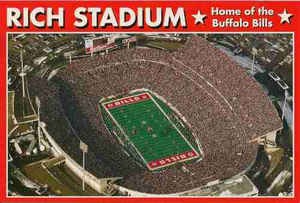
In order to build a new stadium, Bills owner Ralph Wilson had to gain political approval for funds and construction. He also flirted with moving the team to untapped markets like Seattle right in the middle of the Electric Company and O.J. Simpson era.
In securing a plan to stay in Western New York and the suburb of Orchard Park where the Bills play to this day, several options were presented to the Erie County legislature for approval.
One proposal that included Rich Products Corp. footing $1.5 million of stadium cost through naming rights over 25 years was chosen by the local legislature over a competing plan by Ralph Wilson to make up that amount himself to not name the stadium.
This deal was less civil than that of the Patriots, as Ralph Wilson fought the naming of the facility by Rich Products Corp. tooth and nail for a decade according to a piece written by Mark Byrnes at CityLab.
After losing the battle on stadium naming rights, Wilson spent a decade trying to keep the name of the company out of fan’s ears through the media, ticketing, and almost anywhere else. He finally relented in the early 80s and Rich Stadium became treated like any other stadium’s name.
Ultimately, when a new lease was agreed to in 1998, the old grudge was resolved when stadium went from Rich Stadium to Ralph Wilson Stadium in an ironic and fitting twist.
RESEARCH ON THE VALUE OF SECURING NAMING RIGHTS
While examples like these were more common in the 1970s to help fill gaps in additional funds needed for stadium construction projects and for gaining political approval, they’ve changed to a valuable source of revenue for many franchises in today’s NFL.
They also are purported to serve a valuable purpose for the companies that lend their names.
Michael Leeds is a sports economist at Temple University, and he conducted a study published as “A Stadium By Any Other Name. The Value of Naming Rights.” based on 25 years worth of data attempting to measure sponsorship’s impact on overall stock price. His study saw things a bit differently.
The study noted that as late as 1990, very few stadiums (and none in baseball) held a corporate name. Turn the clock forward to 2001, and a majority of stadiums held corporate names — including half of football stadiums.
The research noted that five NFL stadiums even gave up their names through 2004 due to financial distress or bankruptcy:
- Adelphia Coliseum in Nashville
- Pro Player Stadium in Miami
- PSINet Stadium in Baltimore
- 3-Com Field in San Francisco
- Trans World Dome in St. Louis
In the exact words of the study:
“We find little evidence that the purchase of naming rights had a statistically, significant impact on the value of the companies that bought them, even less evidence that the impact was positive, and no evidence at all that there was a permanent, positive impact.”
Perhaps lifting the entire stock price is too tall an order for such a deal. Maybe there are other intrinsic benefits. To find the answer to that question, it’s valuable to look inside specific stadium deals.
RECENT NAMING RIGHTS DEALS
More recently, teams have found greater success with longer-term partners in naming rights. Below are a select few from the last decade:
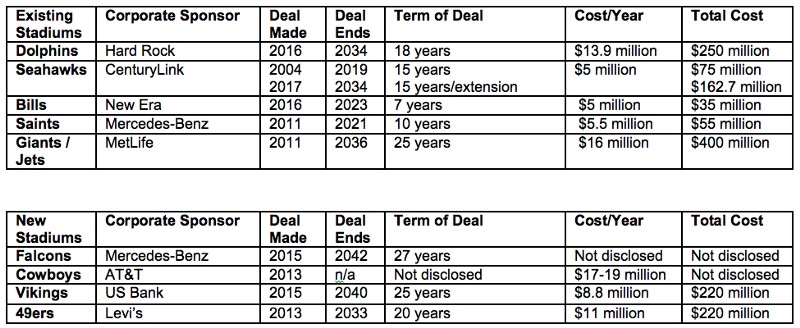
It’s also worth noting that several naming rights deals have terms that are not publicly disclosed. Much of the data referenced in this piece around naming rights deals comes from research conducted by SportsPro Media.
Now, let’s dig into a few of the deals.
The Dolphins struggled for years to find a stable naming partner for, what initially, was the first modern stadium to be completely, privately financed — Joe Robbie Stadium. The stadium, built in 1987, moved from being named after Pro Player apparel (which went bankrupt) to LandShark beer to SunLife Financial.
The moving target of seven name changes and the affinity for the team’s legendary owner, Joe Robbie, provided fuel for fans to continue to refer to the building as “The Stadium formerly known as Joe Robbie” to this day.
In 2016, in conjunction with a two-year renovation project that added a partial roof (meaning shade for fans) to the stadium, the team finally struck a long-term deal with Hard Rock International — owners of the Hard Rock Café restaurant chain.
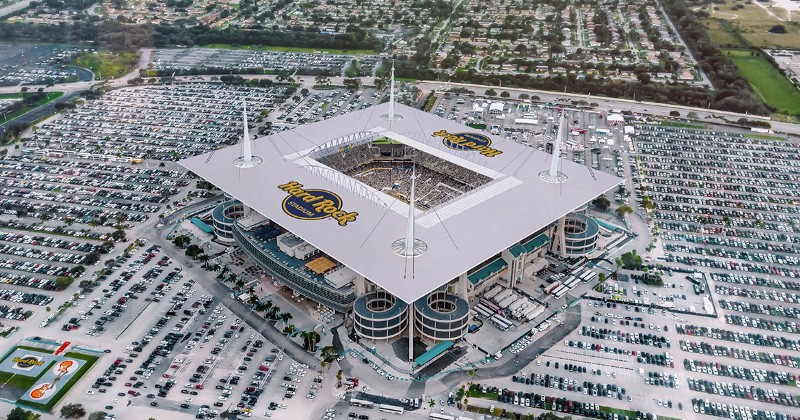
The Dolphins had finally struck gold. Hard Rock not only gained the name on the building, but it received other economic and visibility benefits as well. Hard Rock became the Miami Dolphins’ “official (team) hotel and resort, casual restaurant partner and hospitality sponsor” according to team press release at the time. Additional ads were also to be placed on the renovated stadium — including on the top of the roof — with sponsoring of the pregame area by Hard Rock.
The deal was unique in that the company did not have a strong local tie beyond operation of the nearby Seminole Hard Rock Casino in Hollywood, Florida. However, with a Super Bowl and many national events on the way, the deal fits a more national brand.
The stadium in Miami (unlike many other areas in Florida) was very fortunate to only have minor damage done to the facility very recently as a result of Hurricane Irma, but the Louisiana Superdome in New Orleans and the surrounding region was not so lucky when it came to Hurricane Katrina in 2005.
The team temporarily played games in Baton Rouge and San Antonio to get by, and the future of the franchise in the Crescent City was in jeopardy to where the State of Louisiana had to step in to help keep the team around short term.
The Saints’ deal with Mercedes-Benz to name the Superdome was instrumental in freeing the team from financial obligation from the State of Louisiana by acquiring enough revenue to get the organization back on their feet. The deal didn’t just buy a name; it also bought goodwill.
When Mercedes-Benz also purchased the rights to the longtime rival of the Saints, the Atlanta Falcons’ stadium, Saints president Dennis Lauscha was quick to stress that the company tipped the team off before the move and reiterated how happy both parties were with the name on the Superdome to ease the potential awkwardness.
He even suggested the team could extend the offer with Mercedes-Benz down the road, “I’m just saying the relationship is very good. We’re very happy, and they’re very happy.”
In Dallas, the Cowboys took years to find a sponsor once “Jerry World” opened and jaws dropped in 2008 under the name of Cowboys Stadium. The team held firm to find the right corporate partner.
While most stadiums seek to find a sponsor as soon as they open, such care was given to the decision that North Texas hosting Super Bowl XLV came and went in 2011 without the team capitalizing on the first major event to find a sponsor.
Finally, in 2013, a large national presence headquartered in Dallas stepped in and secured a deal worth a reported $17–19 million a year for the rights based on information shared by ESPN’s Darren Rovell at the time.
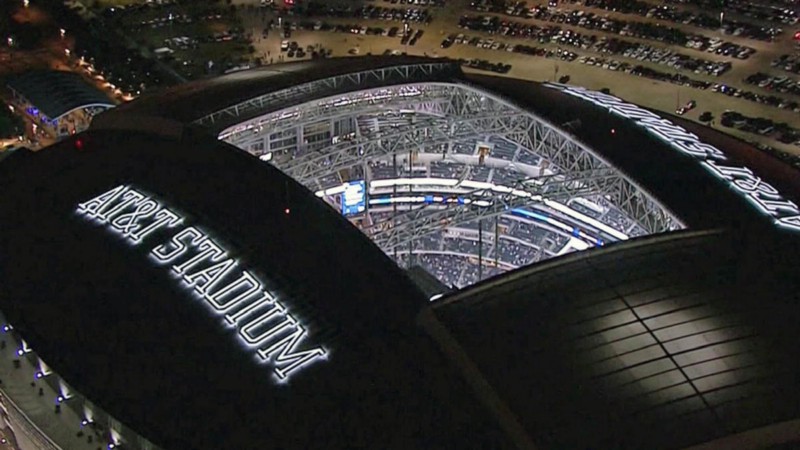
As part of the accord, AT&T also received signage inside and outside the stadium. Legends Way, outside the stadium, was also changed so that the facility could be located on AT&T Way for mailing purposes. It was even reported that AT&T significantly invested to improve their 4G LTE coverage inside the stadium.
The benefits went beyond the two partners as the City of Arlington was set to receive 5% of the value of the deal to help pay off debt.
MERCEDES-BENZ STADIUM OPENS
Mercedes-Benz Stadium became a new chapter in naming rights deals as the first time a single company served as a sponsor of buildings from teams in the same league, in two different cities.
The Falcons had sought to move on from the Georgia Dome in downtown Atlanta — once even tangentially struck by a tornado during an SEC basketball tournament.
In doing so, the Falcons wanted a long-term arrangement, and Mercedes-Benz saw a natural fit from moving their US headquarters from New Jersey to the Sandy Springs area of Atlanta with a brand new complex earlier this year.
As a part of the teams deal with the city of Atlanta and the Georgia World Congress Center Authority, the Falcons keep all revenue from the deal as reported by the Atlanta Journal-Constitution.
The stadium opened this month with an Atlanta United FC MLS game followed by the Falcons first outdoor home game since 1991 played against the Green Bay Packers to a national audience on Sunday Night Football. With the retractable roof open, the stadium’s Twitter account captured the excitement:
141,251 fans.
One historic weekend in the heart of Atlanta. #MBStadium Time-lapse ⬇️ pic.twitter.com/Hs80T6D6ms
— Mercedes-Benz Stadium (@MBStadium) September 21, 2017
Al Michaels of NBC Sports, called the Falcons game and told the Atlanta Journal-Constitution before the game, “It creates some extra buzz for us and for the league and obviously whoever is building the stadium… I think this stadium is going to televise extremely well… I just hope we can open up the roof and really do it justice.”
Now, major sporting events like the 2018 NCAA Football National Championship game, 2020 NCAA Final Four, and Super Bowl LIII await the benefit of both parties.
NAMING RIGHTS DEALS ON THE HORIZON
One major stadium naming rights deal remains on the horizon with the potential for a few more.
In Los Angeles, the stadium that brought the NFL back to the City of Angels will open in 2020 and already has been speculated to be a likely candidate for a Final Four and the recently awarded 2028 Olympics opening ceremony. Add to that a confirmed awarding of Super Bowl LVI, and the stars are aligned for big things in “The City of Champions.”
It needs a name.
Currently known as Los Angeles Stadium at Hollywood Park, since it sits on the site of the former horse racing track in the suburb of Inglewood, just south of where the Lakers played at the Forum for much of their history. The acquisition of that land and demolition of that structure paved the way for the successful bid to move the Rams back to Los Angeles.
In May, Sports Business Journal reported that the Rams were seeking a floor of $30 million per year naming rights fee that would beat the reported $17–19 million a year for AT&T Stadium in North Texas. The term hoped for is set at 20 years.
Who better to break the record for annual spend for naming rights on a stadium than the current record holder? AT&T has been reported as being presented with a deal with the next step being “their move” according to the trade journal.
Strategically, it is said to make sense as Los Angeles is considered a “priority market” for the company, as also reported by the site. Additionally, much of the staff from AT&T’s entertainment group is said to be relocating to corporate headquarters of the company in Dallas or to newly acquired DirecTV headquarters in nearby El Segundo, California.
Sports Business Journal quoted former executive director of sponsorship at AT&T, Tim McGhee, in noting “Like so many big tech brands, (AT&T) wants to be a content company above all else.”
There will certainly be a lot of content both in the sports and entertainment world to be had in Los Angeles.
The Raiders struck a deal in the offseason to move to Las Vegas, and while that won’t happen until 2020, a stadium built for the team will ultimately need a name as well.
Don Muret, president of Gemini Sports Group in Phoenix, speculated to the same source that a stadium in Las Vegas could receive annual naming rights fees comparable to what the Cowboys have at $15–18 million a year.
One thing to keep an eye on with this story is the potential for a local gaming company to bid on the naming rights as the relationship between that industry and the NFL seem set to evolve in the coming years.
The reason that evolution is important is because the Arizona Cardinals are seeking to renegotiate the naming rights to University of Phoenix Stadium in suburban Glendale.
Gila River Gaming Enterprises, who already sponsor the home of the NHL’s Arizona Coyotes a few steps to the north of where the Cardinals play, have begun talking to the team about becoming the new sponsor according to USA Today. The company, run by the Gila River Indian Community, operates four casinos in the Valley of the Sun.
From study data, partnerships, and other intrinsic benefits claimed from both sides in these deals, it’s possible that the beauty might be in the eye of the beholder.
Either way, publicity can sometimes be its own generator of benefit and past deals certainly don’t seem to damper the hopes and aspirations of future stadium naming deals.
Football fans can expect additional corporate names to be added to their lexicon in the coming years as member clubs, companies, and even some municipalities still see roses over any thorns.
This piece has been presented to you by SMU’s Master of Science in Sport Management.
Front Office Sports is a leading multi-platform publication and industry resource that covers the intersection of business and sports.
Want to learn more, or have a story featured about you or your organization? Contact us today.
